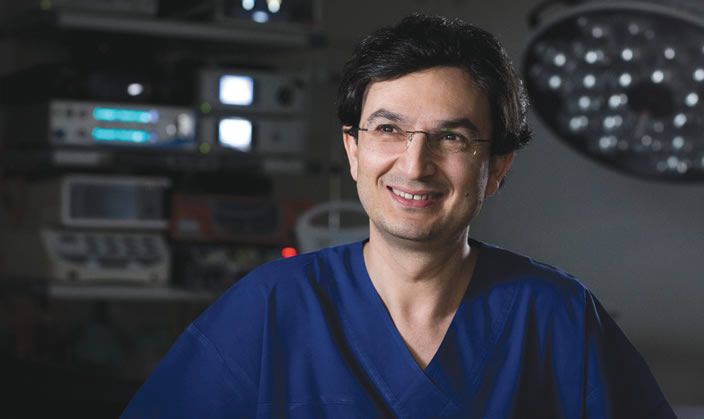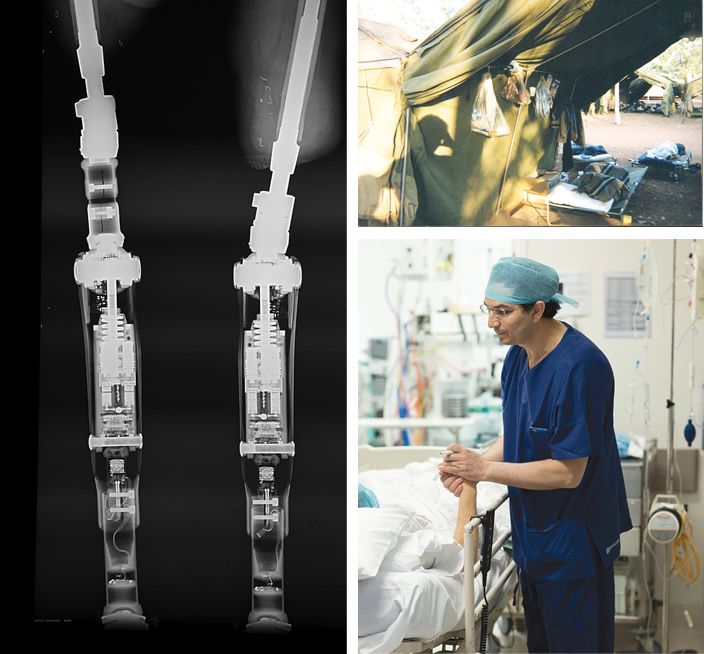Genuine refugee
Al Muderis was found to be a genuine refugee and granted a temporary protection visa. But because he wanted to fulfil his lifelong dream of being an orthopaedic surgeon, he had to leave Australia again and apply for permanent residency from Malaysia.
“I was told I was dreaming when I said I wanted to be an orthopaedic surgeon. I was told that was for the North Shore boys only. I still get asked what school I went to and always reply ‘Baghdad Jesuits’.”
Al Muderis feels that his life story has valuable lessons worth sharing, and because he is a great believer in the power of education, he is a regular public speaker.
He was recently a keynote speaker for a group of students and teachers at the Edmund Rice Centre for Justice through the Arts event, sponsored by IEUA NSW/ACT Branch.
“It’s unfortunate what Australia does to deter people from coming to Australia, despite being signatories to the UN Convention on the rights of refugees.
“You’re supposed to take people who need help, not choose who comes. The Australian policy is stupid and a waste of time and money
“$13.5 billion has been spent on off shore detention and border sovereignty since 2013. That could have been used to get every refugee a degree.”
Al Muderis has a powerful urge to spread his word, because he sees similarities in the current populist movements gaining a foothold in many countries, to 1930s Germany.
People forget
“Every 70 years people forget. We need people to be very strong in preventing it happening again. Hitler didn’t get in from a coup, he was an elected representative.
“Australia is strong due to its multicultural background and we need to nourish that rather than categorise people.
“Education is the strongest weapon we have at our disposal. If you educate people you do not get rednecks. You do not get fanatics and extremists. You do not get people carrying machine guns and shooting children.”
Despite everything he went through upon first arriving in Australia, Al Muderis is now one of the world’s top surgeons and is grateful to Australia and holds no grudges.
“I can put my five children to bed knowing they will wake up safe thanks to Australia, and I didn’t have that in Iraq.
“A father gives nothing better than good education.”
He sees nothing strange about volunteering for the RAAF as a surgeon and has helped provide new limbs for injured servicemen in Iraq, the UK, Holland, Germany, USA and Australia.
“Predominantly I see motor vehicle accident victims. Veterans are the next biggest group.”
He has pioneered the technique of osseointegration, where a prosthetic limb is implanted into the patient’s bone, rather than them using a separate prosthetic limb.
“Disability is a major loss for the person, the family and the community. If I can give these people back a positive life and make them not a burden, I feel good.”
His work led Prince Harry, who is the founder of the Invictus Games for disabled veterans, to visit him at Macquarie University Hospital in 2015.
“Spreading words that help people be elevated above ignorance, getting rid of hatred and being reasonable, that is my quest.
“I’m not religious, but there is one saying of Mohammed I follow: ‘Make every teacher a prophet’.
“I believe there is a problem with the amount of respect paid to teachers in Australia. In Iraq a teacher is highly respected. Everything goes by money here, but it is not just.
“Teachers should always be held in the highest regard by all of society.”









































































































































